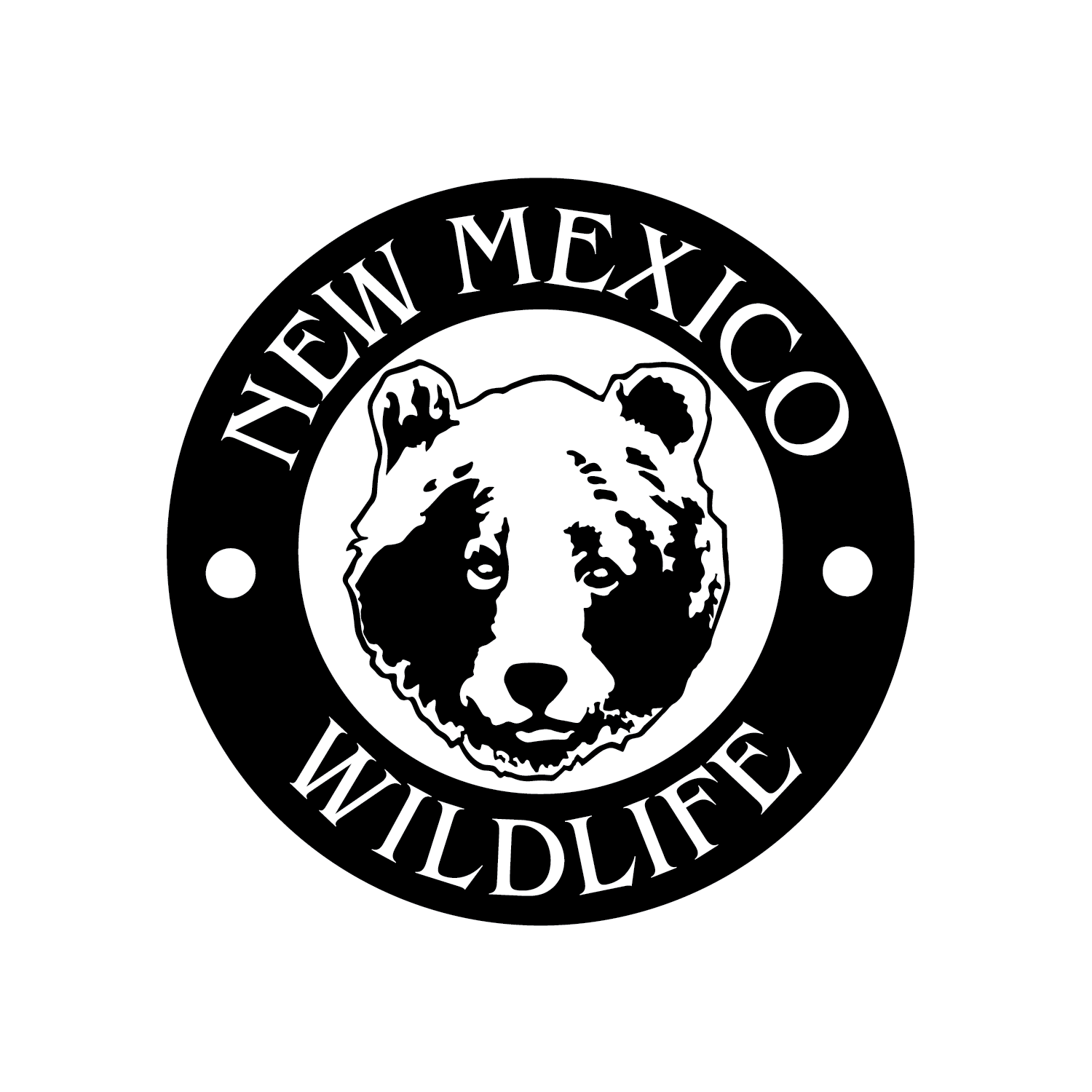Following is a selected project highlight from the Share with Wildlife mission to assist all New Mexico wildlife in need, no matter what species.
Wildlife Education and Rehabilitation
Looking for a fun, educational family outing on a Saturday? Want to learn more about New Mexico’s wildlife? Have you found an injured or sick wild animal? New Mexico Wildlife Center (NMWC) in Española can help. The Center has over 35 educational animals that you can see and learn about in self-guided tours. If you want more information about species habitats, adaptation, conservation, and biology, you can schedule an Education Program for different age groups; all you have to do is call them at 505-753-9505 and ask for Jarrod. The Center also has a lovely native plant garden and a cactus garden that they are continually working with Santa Fe Master Gardeners Association and The Native Plant Society of New Mexico to expand and boasts many pollinator-friendly plants and bee houses.
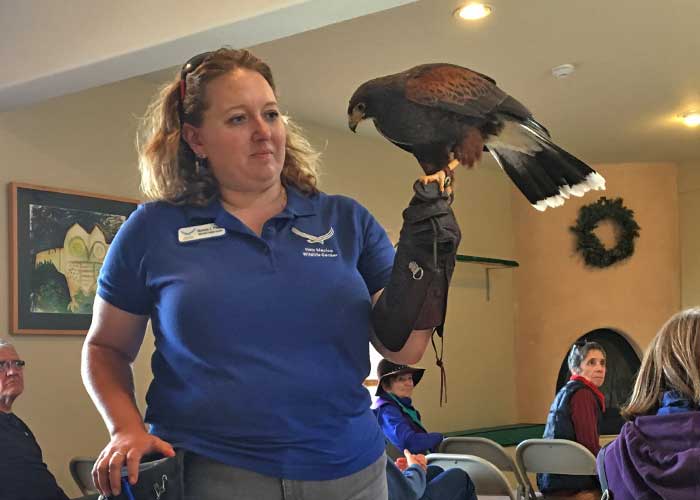
NMWC staff and educational bird during raptor program. (Ginny Seamster)
The Center also has special educational events. One such special event was a celebration of World Migratory Bird Day held in May, 2019. This event included flight demonstrations by, and educational presentations regarding, several of the educational animals at the Center, as well as presentations on wildlife rehabilitation and bird-friendly actions to take to address many factors threatening birds. The Center also had fun activities for visitors, including decorating reusable tote bags (reducing plastic waste helps all wildlife, especially birds!) and playing feather bingo!
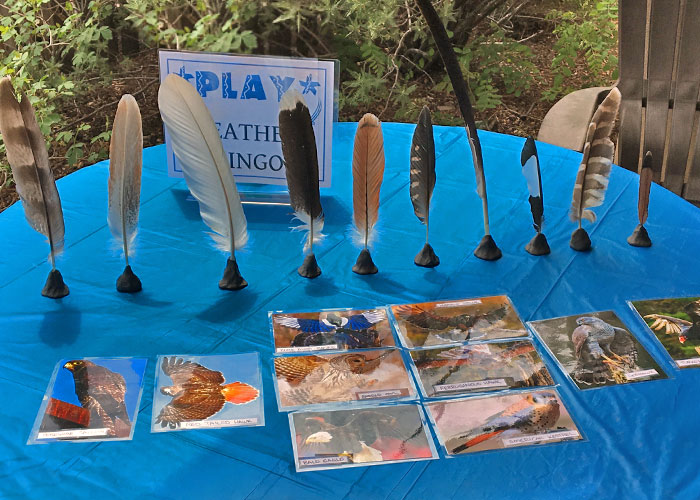
Feather bingo at WMBD event. (Ginny Seamster)
New Mexico Wildlife Center also has a fully developed science curriculum that they present to students at several schools in northern New Mexico, including in the Española Valley. The curriculum is focused on river ecology and includes evaluation of water quality through measurements of both abiotic parameters (e.g., temperature and pH) and the local biotic community (i.e., macroinvertebates). Students sort through collections of aquatic insects, determining whether they are species that can tolerate pollution.
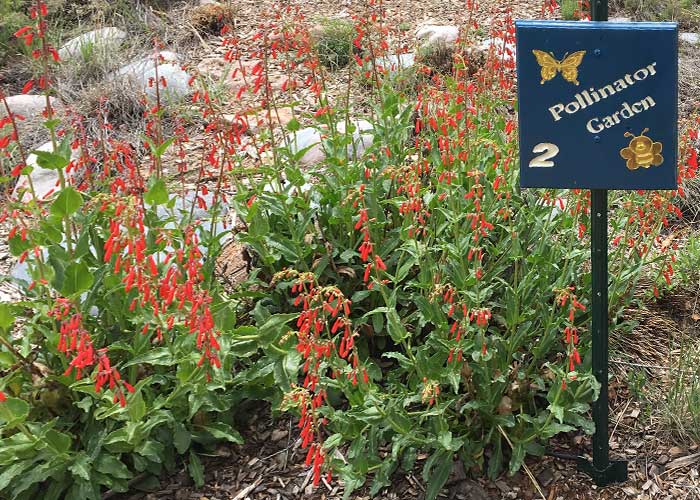
Penstemon in pollinator garden. (Ginny Seamster)
New Mexico and you’ve found a wild animal that appears to be injured, ill, or otherwise incapacitated and may need help, call the Center first. Their staff is highly trained and knowledgeable about wildlife biology and health. They will be able to tell you whether it is appropriate to move the animal and either bring it to their facility or meet with a volunteer transporter somewhere in the middle if you live far away from Española.
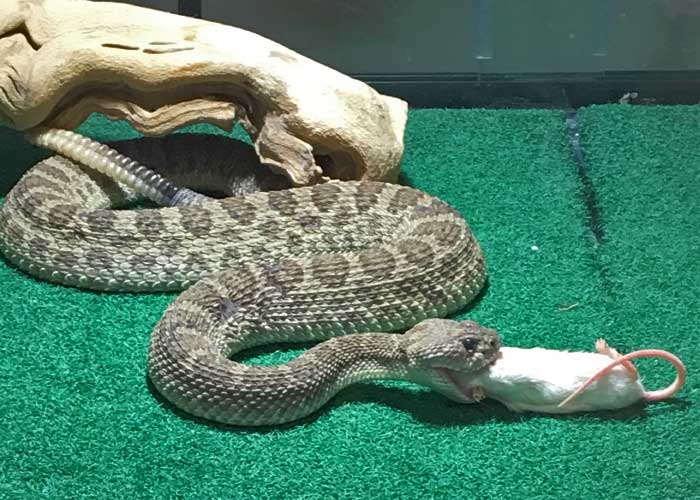
Educational animal eating breakfast. (Ginny Seamster)
